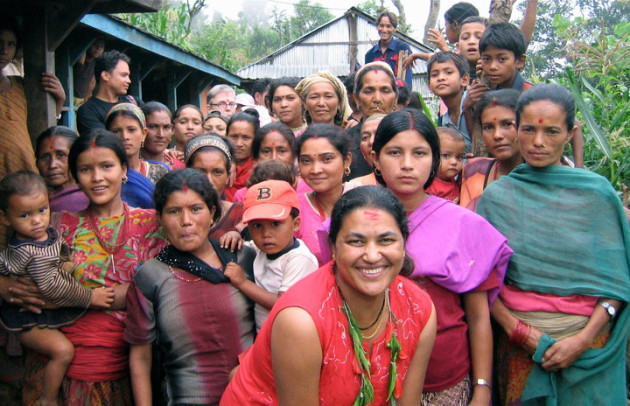Gender parity is still a very long march ahead (Commentary)

File photo of Nepali women.
Pabitra Guragain / Kathmandu: The 106th International Women’s Day was celebrated in various countries across the globe including Nepal on Tuesday, with different events and celebrations commemorating the Day also known as March 8 Day. The celebration marks the movement by women labourers held at the turn of the twentieth century in New York city demanding an end to discrimination in job and suffrage.
However, despite a century-long history of celebrations, women of the 21st century continue to struggle for gender parity and for their rights, better space in the family and society, meaningful participation in politics and in decision-making level of the state among others.
The situation of women especially in the South Asia region do not project any encouraging sight with many women being tortured, trafficked, raped and murdered every day. These are all happening just because they are women.
Widespread discrimination, violence, extra burden of household chores, traditional mindset that women are born to just carry on family duties, lack of education opportunities, child or early marriage remain as barriers to their empowerment. As a result, women are pushed backward socially, economically and politically as they lack confidence to raise voices for their rights and defend unfair treatment towards them.
Even home does not seem safe for women as domestic violence against them remains alarmingly high in the South Asian countries. For example, in Pakistan, ‘honour killing’, the worst form of violence against women, is prevalent and many deaths related to such ill-practise in which daughters are mercilessly murdered in the name of defending family honour make frequent media headlines. The Agence France Presse or AFP on March 2 reported that police are hunting for a man in his late twenties who shot dead both his sisters in an apparent honour killing because he doubted their ‘character’ and was against their lifestyle. In a recent incident, a father in the eastern city of Lahore murdered his 18-year-old daughter because she could not account for where she had been for about five years as reported by the AFP. In India, the cases of gang rape of women, child marriage and murders of daughters-in-laws for not bringing dowry as per the expectations are common. Killings, especially elderly women in the name of witchcraft, also make frequent newspaper headlines in Nepal.
Workplace too does not seem women-friendly as working women face harassment from their male colleagues or male staff at the place of employment too. Not only in impoverished South Asia, a recent survey in Japan, a developed country in Asia, showed that one-third of Japanese working women suffer sexual harassment at their place of employment, though nearly two-thirds of these women suffer in silence.
In Nepal too, the overall situation of women making up some 51.43 per cent of the total population is not satisfactory, the issues of gender equality and women rights are always the topic of discussions in this patriarchal-based society. Nepali women from rural to urban areas and from poor to well-to-do families continue to face violence and working women are subjected to workplace bias.
Nepal observed this year’s International Women’s Day under the theme of Planet Fifty Fifty: Step it for gender equality while the international theme was ‘pledge for parity’. The country’s new constitution provides that ‘Every woman shall have equal right to lineage without any gender discrimination. Every woman shall have the right relating to safe motherhood and reproductive health. There shall not be any physical, mental, sexual or psychological or any other kind of violence against women, or any kind of oppression based on religious, social and cultural tradition, and other practices. Such an act shall be punishable by law and the victim shall have the right to be compensation as provided for in law’.
It also establishes that ‘women shall have the right to participate in all state structures and bodies on the basis of the principle of proportional inclusion. Women shall have the right to special opportunity in the spheres of education, health, employment and social security on the basis of positive discrimination. Both the spouses shall have equal rights in property and family affairs’.
The provisions look promising in paper, but the challenge continues on their effective enforcement.
Anuradha Koirala, the founder of Maiti Nepal, a non-profit organisation dedicated to fighting against trafficking of women, sees the lack of education to girls as the root-cause behind the lack of women empowerment. In her view, girls should be encouraged for education as this instils confidence in them to fight for a better space in the society.
However, Media Advocacy Forum Chair Babita Basnet sees many achievements to cheer in the favour of women in the context of Nepal. A lot of things have been done in favour of women as of now compared to the past. But still ground-breaking achievements remain as distant goals. Lot needs to be done for gender parity and overall development of women.
She insists that commitments made for women’s rights and in their favour be implemented to the meet the goals.
Hence, the state should come up with an effective policy to eliminate violence against women and to promote women’s education, participate them in the state mechanism so that a society can be created where women can live with full sense of self respect and dignity, taking pride for being a woman and with no more gender disparity every day can be observed as the women’s day. RSS
